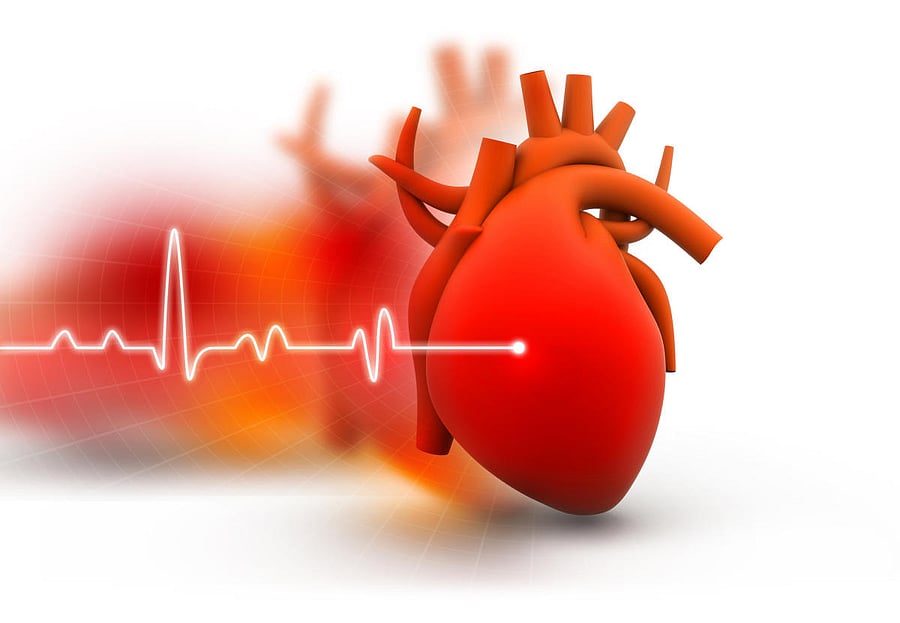A middle-aged Yemeni national who developed a “double-heart” after a massive heart attack in February was freed from fears of a sudden cardiac arrest following surgery in Bengaluru this month.
Mohammed Abdullah (56), a farmer from Yemen, had suffered a massive heart attack and found himself beset by a rare condition called a large ventricular aneurysm which resulted in an “outpouching” of the main chamber of his heart, effectively giving him a “double-heart”, which equalled the main heart in size but was non-contractile and did not have a pulse.
With no access to a proper hospital because of the civil war in Yemen, Abdullah later told doctors that he drank a glass of water and applied honey to his chest in an effort to solve the problem.
Predictably, the remedy failed.
As months went by, Abdullah told doctors that he realised something was wrong. His heart was pumping abnormally low levels of blood through the body. When a nephew living in Kammanahalli, Bengaluru, suggested treatment at a hospital in the city, Abdullah made a five-day journey by boat and plane to reach India.
Dr Adil Sadaq, the head of cardio-thoracic surgery at Sakra World Hospital, said he was shocked by the size of Abdullah’s “outpouching” which showed signs of rupturing any moment.
“The pumping power of the heart was only 30% while it should have been 60%,” Dr Sadiq said.
“I did not expect to see this condition because it affects only 0.25% of people worldwide. The prevalence rate was about 5% five decades ago when people had less access to healthcare.”
He quickly realised that Abdullah fulfilled three of the seven criteria for cardiac arrest — he had diabetes, high cholesterol and a high intake of tobacco.
Following successful endoventricularplasty and bypass surgery, the patient was discharged after which he returned to his farm in Yemen.

